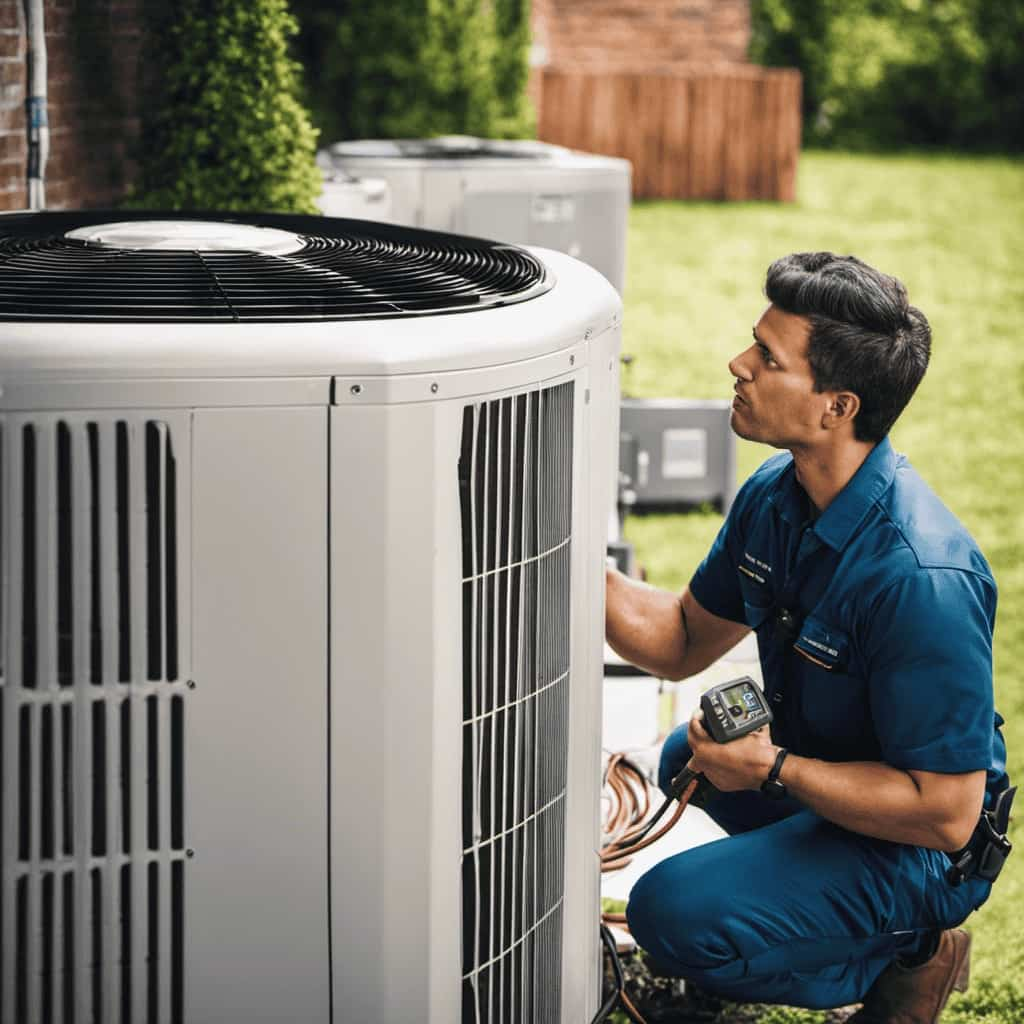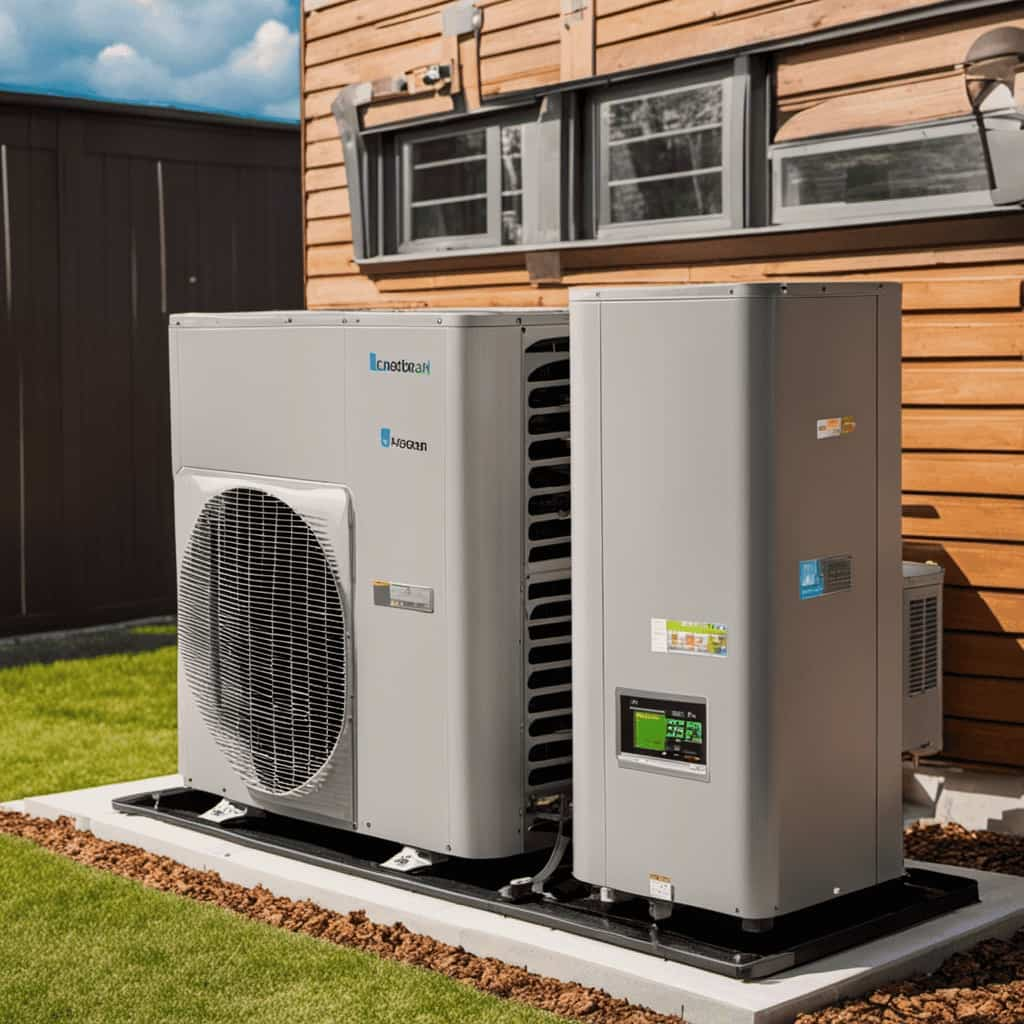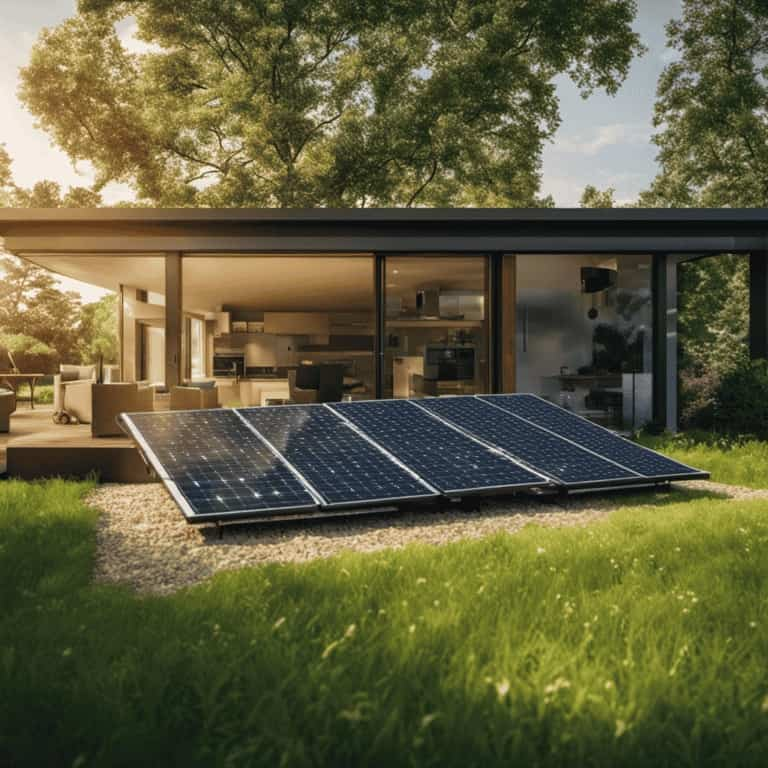Get ready to excel in the realm of energy efficiency with heat pump systems! Look here for all your needs!
In this article, we’ll delve into the ins and outs of improving energy efficiency in heat pump systems. From understanding the basics to evaluating energy efficiency ratings, we’ve got you covered.
Get ready to take your energy-saving game to the next level!
Key Takeaways
- Energy efficiency in heat pump systems reduces energy costs and environmental impact.
- Proper insulation, regular cleaning and maintenance, and optimizing performance are factors that affect energy efficiency in heat pump systems.
- Heat pump efficiency is measured by the coefficient of performance (COP), with higher COP values indicating better efficiency.
- Evaluating and comparing energy efficiency ratings, such as SEER and HSPF, can help in choosing the most efficient heat pump system for specific heating and cooling requirements.
The Importance of Energy Efficiency in Heat Pump Systems
Now let’s delve into why energy efficiency matters in heat pump systems.
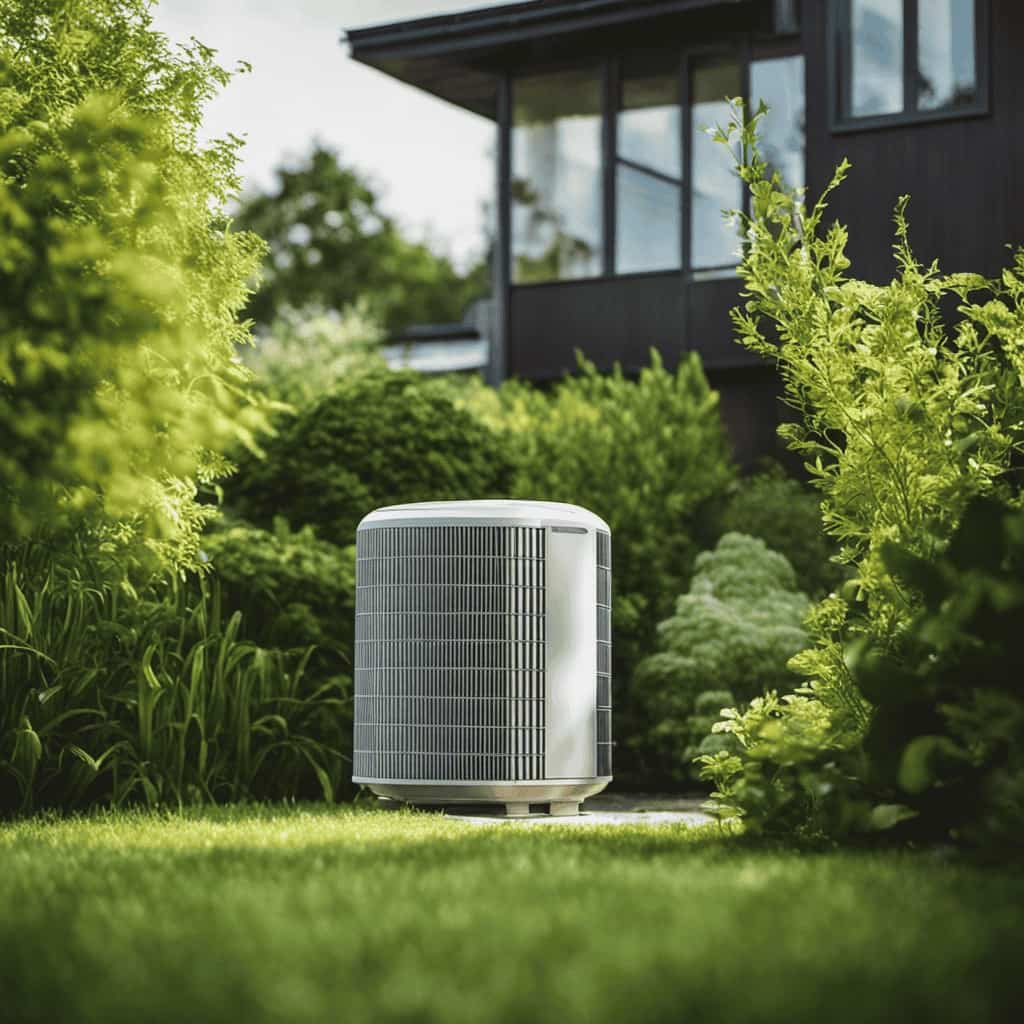
Energy efficiency is a crucial aspect of heat pump systems that can’t be overlooked. By incorporating energy saving technology, heat pumps can effectively reduce energy consumption and maximize performance.
The benefits of energy efficiency in heat pump systems are numerous. Firstly, it lowers energy costs by using less electricity to produce the same amount of heating or cooling. This not only saves money but also reduces the environmental impact of energy consumption.
Secondly, energy efficiency leads to a longer lifespan for heat pump systems by reducing wear and tear on components.
Lastly, increased energy efficiency contributes to a more comfortable and consistent indoor environment.
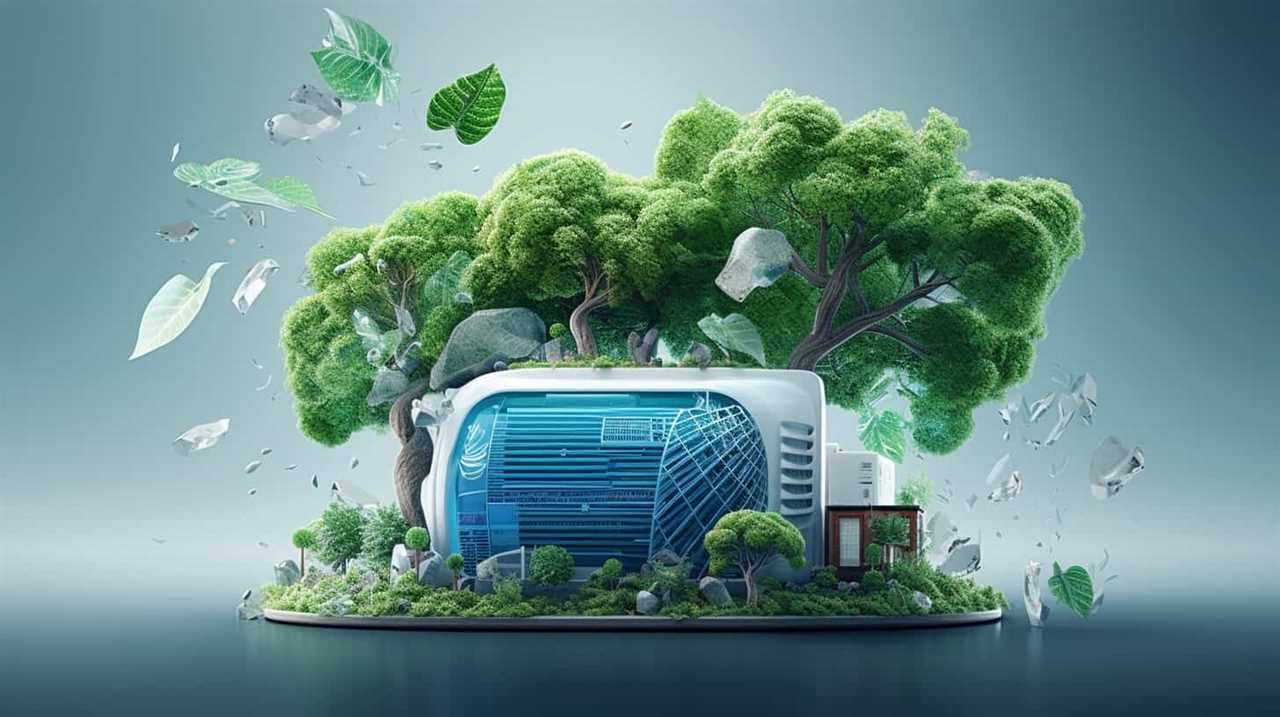
Understanding the Basics of Heat Pump Efficiency
Let’s start by gaining a clear understanding of the basics of heat pump efficiency.
Heat pump technology is designed to efficiently transfer heat from one location to another, using a small amount of energy. The efficiency of a heat pump is measured by its coefficient of performance (COP), which is the ratio of the heat output to the energy input. Higher COP values indicate better efficiency.
To maximize the efficiency of your heat pump, there are a few energy-saving tips to keep in mind.
First, ensure proper insulation in your home to minimize heat loss.
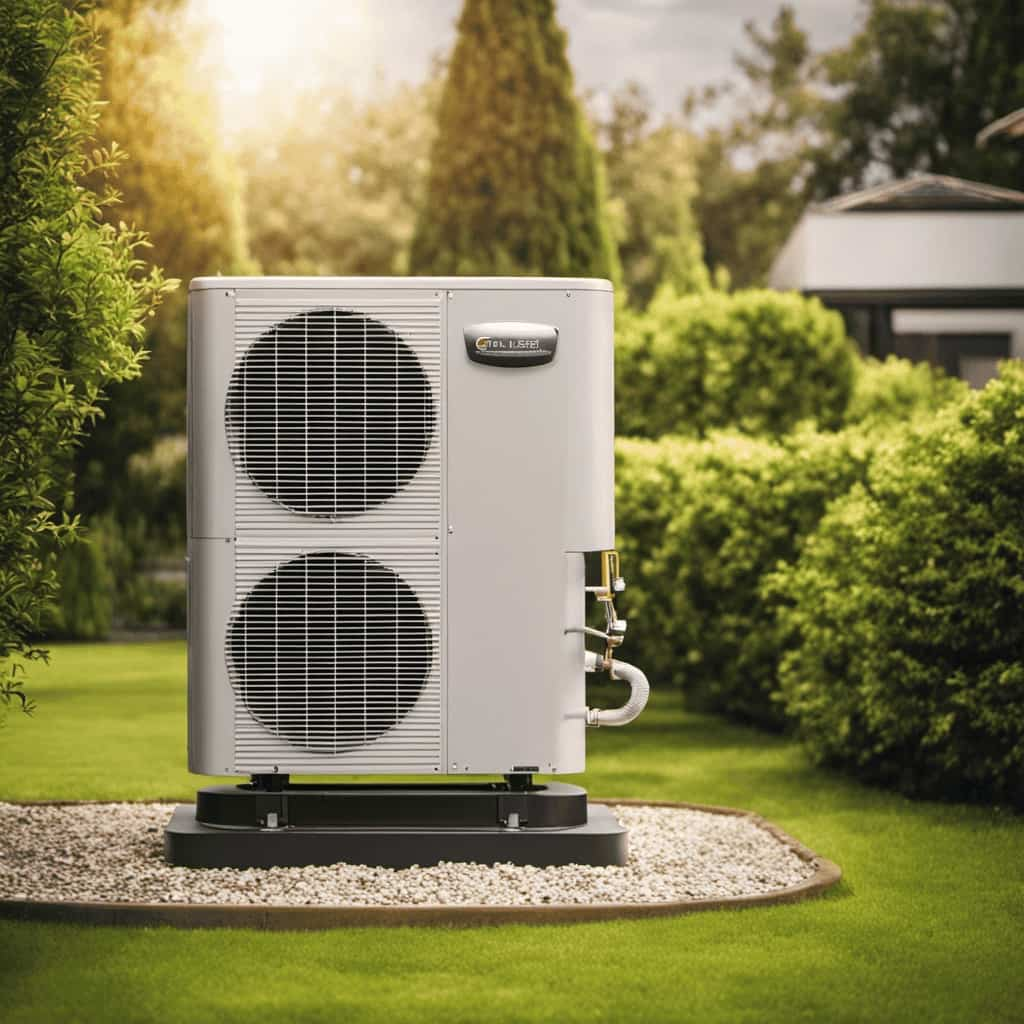
Second, regularly clean and maintain your heat pump to optimize its performance.
Lastly, consider using a programmable thermostat to control the temperature and reduce energy consumption.
Key Factors Affecting Energy Efficiency in Heat Pump Systems
There are several key factors that affect the energy efficiency of heat pump systems.
One of the most important factors is optimizing performance. This involves ensuring that the heat pump is properly sized for the space it’s heating or cooling, as well as regularly maintaining and servicing the system to keep it running efficiently.
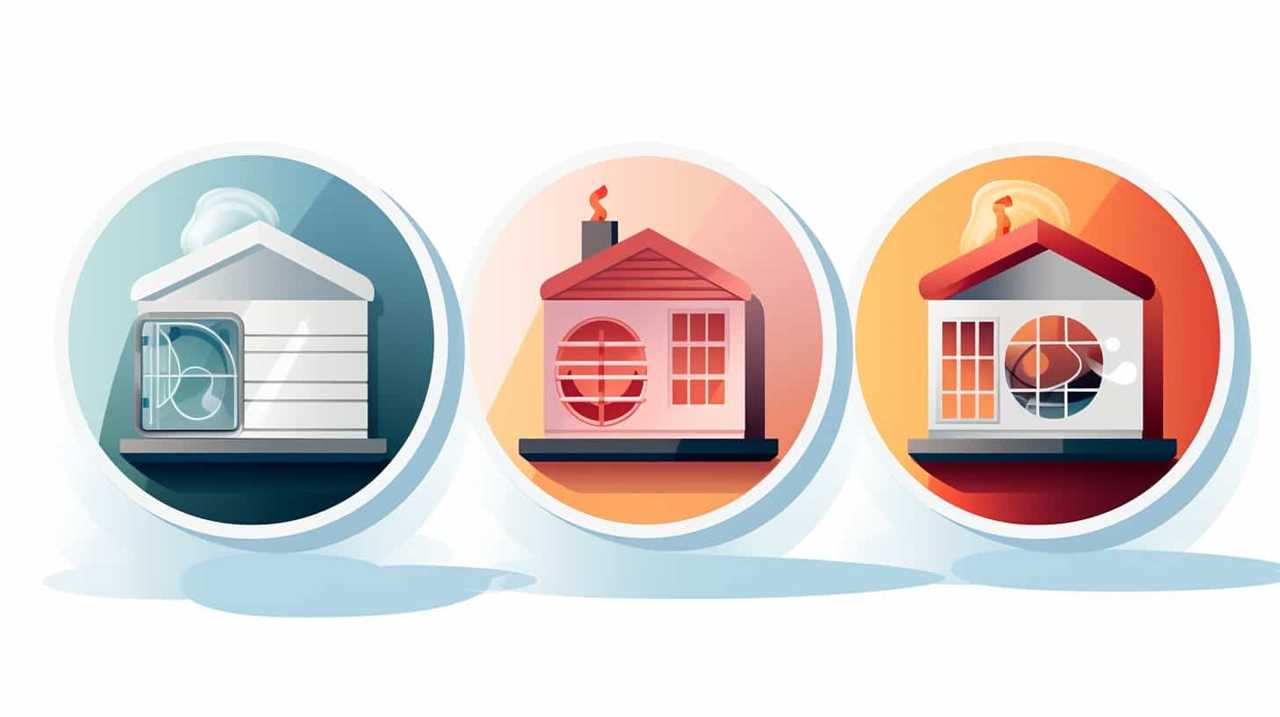
Another factor that affects energy efficiency is the environmental impact of the heat pump system. Heat pumps are known for being more environmentally friendly than traditional heating and cooling systems because they use renewable energy sources, such as the air or ground, to transfer heat.
However, the energy efficiency of a heat pump can still be influenced by factors such as the source of electricity used to power the system.
Evaluating and Comparing Energy Efficiency Ratings of Heat Pumps
We can evaluate and compare the energy efficiency ratings of heat pumps by considering their Seasonal Energy Efficiency Ratio (SEER) and Heating Seasonal Performance Factor (HSPF). SEER measures the cooling efficiency of a heat pump, while HSPF measures its heating efficiency.
A higher SEER or HSPF rating indicates better energy efficiency and potential energy savings. When evaluating performance, it’s important to compare heat pumps with similar SEER and HSPF ratings.
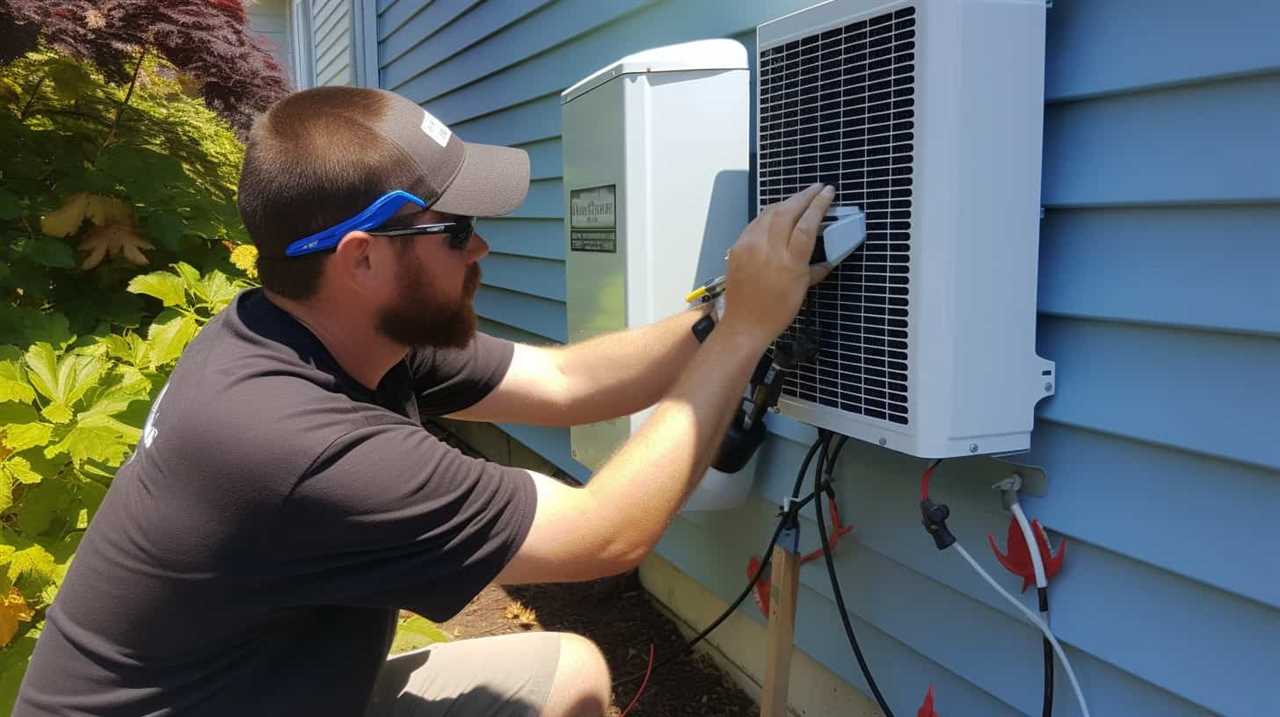
Additionally, it’s essential to consider the climate in which the heat pump will be used, as different regions have varying heating and cooling requirements.
Tips for Improving Energy Efficiency in Heat Pump Systems
To improve energy efficiency in heat pump systems, it’s important to regularly maintain and clean the system’s filters and coils. This ensures that the airflow isn’t obstructed and that the heat transfer process is efficient. Additionally, setting the heat pump to energy-saving settings can significantly reduce energy consumption.
Here are some tips to help improve energy efficiency in heat pump systems:
- Regularly clean or replace the air filters to maintain proper airflow and prevent dust and dirt buildup.
- Clean the outdoor coils to remove any debris or dirt that may hinder heat exchange.
- Check the refrigerant levels and ensure they’re at the recommended levels to optimize system performance.
Frequently Asked Questions
What Are the Different Types of Heat Pumps Available in the Market?
There are different types of heat pumps available in the market, each with their own advantages. They are a cost-effective and energy-efficient way to heat and cool your home, making them a popular choice among homeowners.

What Is the Average Lifespan of a Heat Pump System?
What is the average lifespan of a heat pump system? How long do they typically last? We’ll discuss this and also touch on the maintenance requirements to ensure optimal performance and longevity.
Can a Heat Pump System Be Used for Both Heating and Cooling Purposes?
Yes, a heat pump system can be used for both heating and cooling purposes. It is a highly efficient option for residential use, offering benefits such as energy savings, consistent temperature control, and reduced environmental impact.
How Does the Size of a Heat Pump System Affect Its Energy Efficiency?
The size of a heat pump system directly impacts its energy efficiency. Factors such as heat pump system sizing, insulation, and climate all play a role in determining the overall efficiency of the system.
Are There Any Government Incentives or Rebates Available for Installing Energy-Efficient Heat Pump Systems?
There are government incentives for heat pump systems that encourage the installation of energy-efficient heating. These incentives can include rebates and tax credits, providing financial benefits for those who choose to go with energy-efficient options.
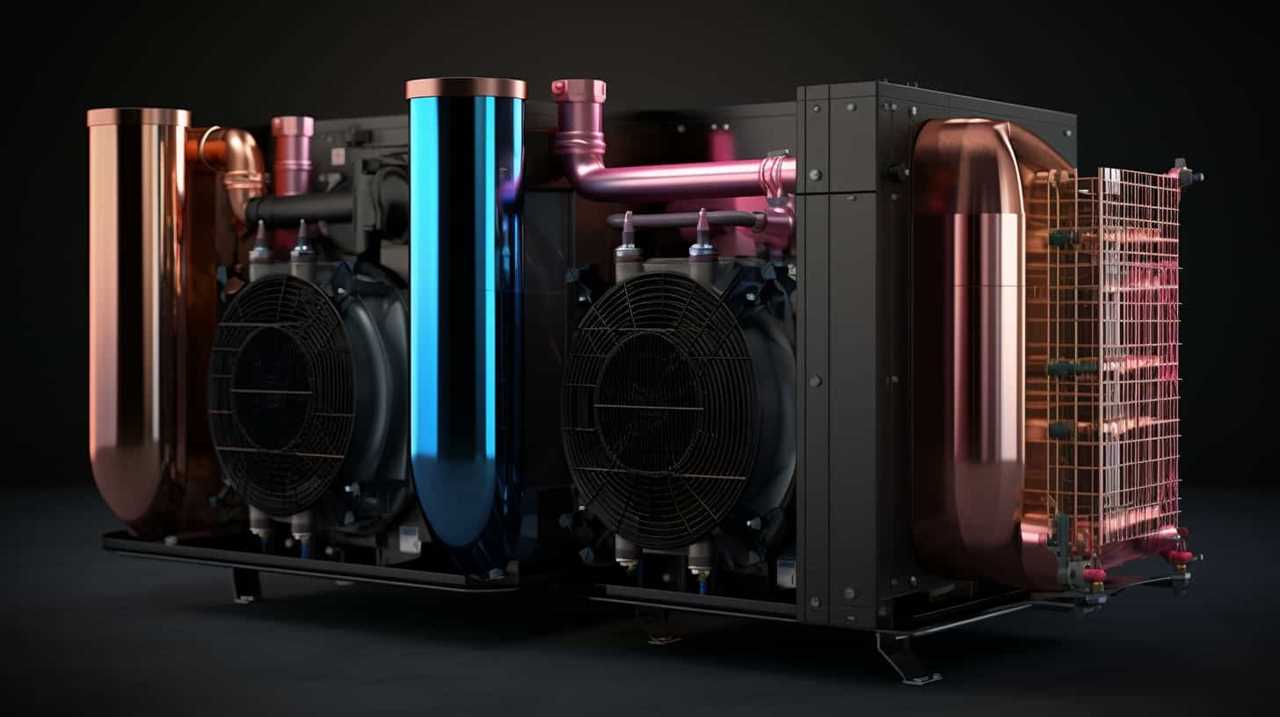
Conclusion
In conclusion, maximizing energy efficiency in heat pump systems is crucial for both environmental and financial reasons.
By understanding the basics of heat pump efficiency and considering key factors that affect it, consumers can make informed decisions when evaluating and comparing energy efficiency ratings of heat pumps.
Additionally, implementing simple tips for improving energy efficiency can further enhance the overall performance of these systems.
Ultimately, prioritizing energy efficiency won’t only benefit the planet, but also lead to significant cost savings in the long run.
